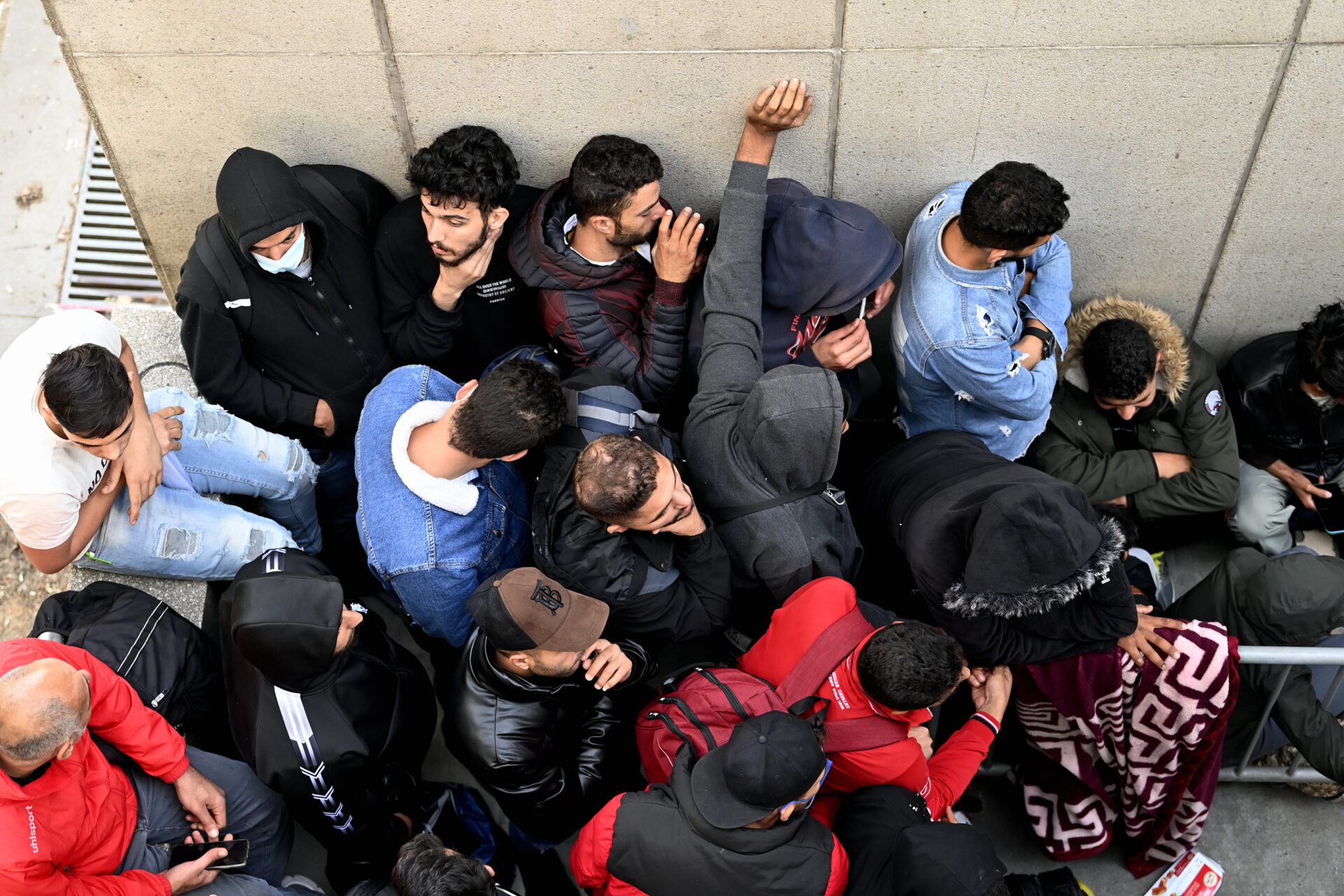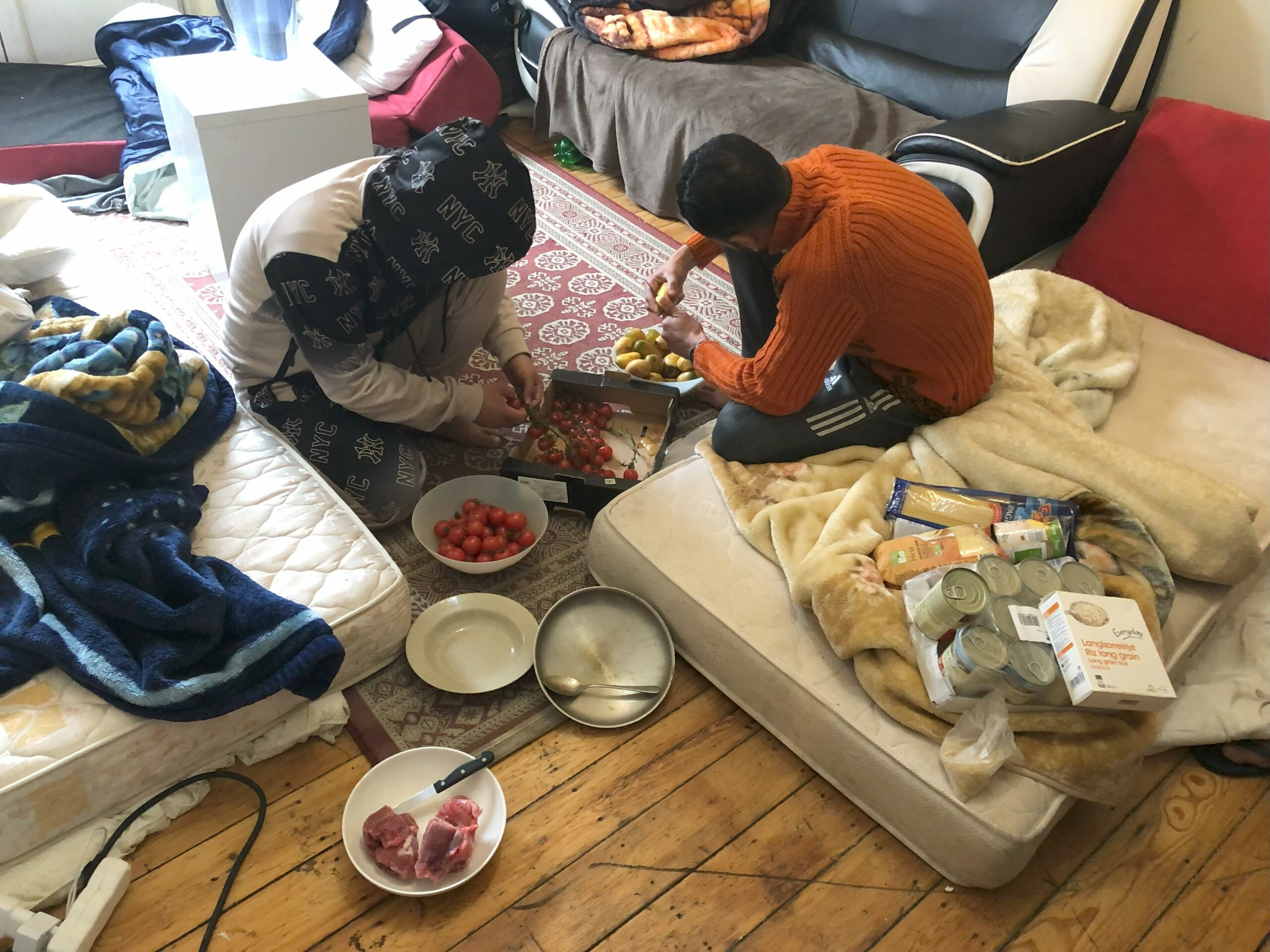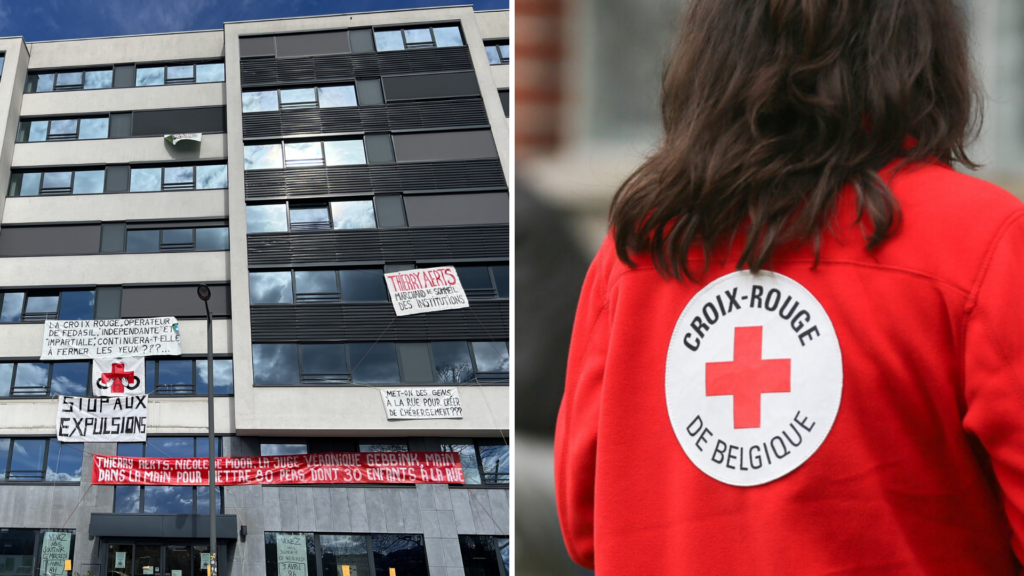A squat at the heart of months of controversy has been transformed into an asylum seeker reception centre by the Belgian Red Cross.
The new centre on Avenue de la Couronne in Ixelles opened its doors last week. A total of 40 Red Cross employees will staff the centre, which currently has room for 224 asylum seekers. After further renovations, it will be able to house 360 individuals.
Previously a nursing home, the site had been occupied by squatters since January and mainly housed families (80 people, including around 30 children) until they were evicted this month.
"Fedasil [Belgium's asylum reception agency, ed.] still lacks space to welcome asylum seekers to Belgium, and especially Brussels," a spokesperson told The Brussels Times. "We have signed an agreement with the Red Cross to open a new centre in Ixelles and we are pleased to be able to have increased our reception capacity."
More centres needed
Belgium is in the midst of a reception crisis which has left thousands of asylum seekers – particularly single males – homeless. Belgium has violated international law by failing to welcome international protection applicants and Fedasil is currently under enormous pressure to come up with more space.

People waiting to apply for asylum in Brussels. Credit: Belga / Eric Lalmand
Thomas Willekens of Vluchtelingenwerk Vlaanderen (Refugee Council Flanders) welcomes the new centre. "It is always a good sign that new asylum centres can still be opened, because it seems that it is becoming nearly impossible due to a lack of will on the local level," he told The Brussels Times.
Willekens says that there is an urgent need to open more centres, conceding that this is an "unpopular opinion" given the fact that there has never been so many spaces available (35,000). Nevertheless, as of mid-August there are 3,900 people on the waiting list who are sleeping rough, in squats, friends' houses or elsewhere in the meantime.
'On a human level, it feels wrong'
The 80 people who were evicted to make way for the centre have been rehoused in another squat in Woluwe-Saint-Pierre. Non-profit organisations have expressed discomfort with the fact that one group of marginalised people was cleared to make way for another.
"On a human level, it feels wrong to force people out to then move new people in," commented Willekens. "It feels wrong because people who squat are not doing so out of choice: [squatting] is a last resort."
Assisting one group to the detriment of another amounts to "putting out one fire on a street full of fires," he added, but acknowledges that accommodation which forms part of the official structure is ultimately preferable.

Young asylum seekers prepare a meal in a Brussels squat. Credit: The Brussels Times
"For my part, I have been just as attentive to the situation of the people who were here before as those who are coming now," Ixelles Mayor Christos Doulkeridis (Ecolo) told The Brussels Times. Doulkeridis was instrumental in securing the second Woluwe-Saint-Pierre squat for the evicted individuals.
"I think we are setting a good example by not pitting one marginalised group against another. We tried to find solutions for both, and that is what we did. That is the way we have to work."

